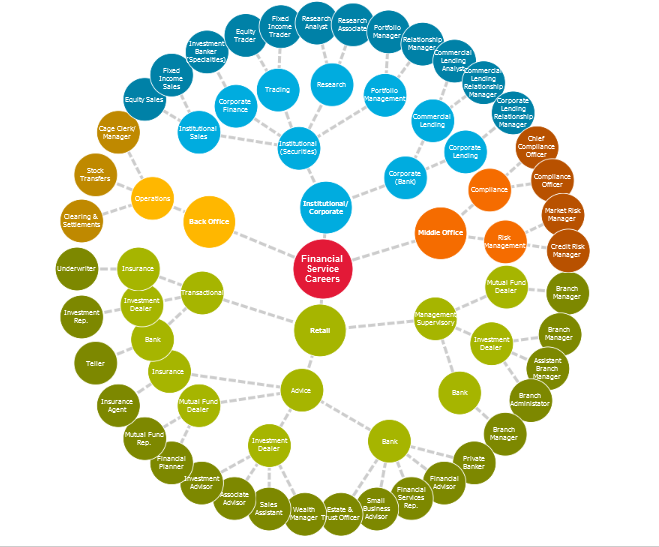
Remote work consulting presents many opportunities and challenges for professionals in this field. We'll talk about the benefits of this new working model, as well the challenges and key areas for consultants. We'll also explore the benefits and challenges of working from home.
Changes in remote work environment
A growing trend is the improvement of remote work environment for consultants. Both employers and employees will reap many benefits from this trend. It allows companies to reach a wider talent pool, and it increases productivity. Twitter recently claimed that this shift is the reason its workforce is diverse. According to the company's data, Black representation has increased by a quarter and Latino hiring has increased 50%.
Remote work can also be beneficial for women. Remote work allows women to work more flexible hours and save time by not having to travel as much. Remote work can also increase the gender gap in the workplace. This trend is particularly evident in industries and occupations where women are underrepresented.
Remote work consulting can have many benefits
You may be able to work from home and save money. A reduced requirement for office space, electricity and electronics will result in lower bills. Also, there is less maintenance and cleaning required. If you're thinking about consulting as a career, working from home is an excellent option.

Remote working can also help organizations cut down on travel expenses. This allows for more money to be used elsewhere. The organization doesn't have the expense of renting office space or purchasing facilities. Additionally, they can save fuel and energy costs. They also reduce greenhouse gas emissions.
The challenges of remote work consulting
Working remotely can present unique challenges. For example, team members from different cultures may have varying levels of English proficiency, as well as different workplace cultures. This can make it difficult to maintain consistency. It is also important to establish policies and procedures to provide paid time off for employees. If you expect your employees to work uninterrupted, it is important to be able to give breaks to them and plan for their vacations.
Remote workers also face issues of communication. It can be difficult for remote workers not to communicate effectively, as they do no have the benefit overheard conversations or a cubicle wall. The lack of context can make them feel lost, so it is crucial to communicate regularly. Clarify any misunderstandings you have and make sure you speak up when necessary.
Remote work consultants need to be familiar with the following areas
There are a few things to look for when you hire a remote consultant. Remote work is dependent on having connections. A consultant should be able help you make those connections. These are the areas of expertise that remote-work consultants should be skilled in.
Policies – A remote work consultant can help create policies for your company that will empower remote workers. They can help with creating rules and tools for synchronous communication. They are also familiar with the legal requirements that come with working in remote environments.

Cost to hire a remote consultant for work
You need to understand the cost of hiring a remote consultant to assist you with your project. Remote work consultants are significantly less expensive than hiring employees. It is possible to save as much as 52% in some cases. There are many things you should keep in mind.
It is important to remember that integration costs can be very high, particularly if the tasks involved are firm-specific. Also, be aware of the cost for monitoring, screening and hiring. This will help you decide if this is worth it for your company.
FAQ
What are the types of contracts available to consultants?
Standard employment agreements are signed by most consultants when they are hired. These agreements specify how long the consultant will be working for the client and what he/she will be paid.
Contracts may also include details about the specific areas of expertise that the consultant is going to be focusing on as well as how they will be compensated. The agreement might state that the consultant will conduct training sessions, workshops or webinars.
Sometimes, the consultant just agrees to complete certain tasks within a defined timeframe.
Many consultants sign independent contractor arrangements in addition to standard employment contracts. These agreements allow the consultant not only to work for himself/herself but also provide payment.
Do I really need legal advice?
Yes! Yes. Many consultants sign contracts without seeking legal advice. This can create problems down the line. For example, what happens to the contract if the client terminates it before the consultant has completed? Or, what happens if the consultant doesn't meet the deadlines set forth in the contract?
It's best to consult with a lawyer to avoid potential problems.
Do I need to pay tax on consulting income?
Yes. You will have to pay taxes on your consulting profits. The amount depends on how much you earn per year.
If you're self-employed, you can claim expenses on top of your salary, including rent, childcare, and food.
But, interest payments on loans, vehicle and equipment depreciation will not be allowed to be deducted.
You can only claim back 25% of your expenses if you earn less than PS10,000 a year.
But even if you're earning more than this threshold, you might still be taxed depending on whether you're classed as a contractor or employee.
Employers are taxed via PAYE (pay as your earn), and contractors through VAT.
How can I become a successful consultant
It is important to identify an area of passion. You must then build relationships. It is crucial to learn about your clients and understand their needs. The final step is to provide results.
While you don’t necessarily have to excel at every task, you should be better than all the rest. You need passion for what your do. It isn't enough just to say, "I'm going to be a consultant." It's important to believe in your abilities and do what you love.
How is consulting different to freelancing
Freelancers work as independent contractors and offer their services without the assistance of an agency or company. They charge hourly rates depending on the amount of time spent on a client's projects. Consultants typically work for agencies and companies that employ them. Their salaries are usually paid monthly or annually.
Consultants often have more flexibility, while freelancers can choose to work when they want and set their own rates. However, consultants often have better benefits, such as health insurance, vacation days, sick leave, retirement plans, etc.
Can anyone be a consultant?
A consultant is someone that helps you achieve your goal. They can offer advice on how to do it better, faster and cheaper.
Consulting can be a great way to solve problems, make informed decisions, and work with others.
Consultants are often hired to help with specific tasks and projects.
In reality, consultants are generally paid hourly or daily rates and not per project.
Statistics
- According to IBISWorld, revenues in the consulting industry will exceed $261 billion in 2020. (nerdwallet.com)
- 67% of consultants start their consulting businesses after quitting their jobs, while 33% start while they're still at their jobs. (consultingsuccess.com)
- Over 50% of consultants get their first consulting client through a referral from their network. (consultingsuccess.com)
- "From there, I told them my rates were going up 25%, this is the new hourly rate, and every single one of them said 'done, fine.' (nerdwallet.com)
- So, if you help your clients increase their sales by 33%, then use a word like “revolution” instead of “increase.” (consultingsuccess.com)
External Links
How To
How do you find the best consultant?
The first thing to do when looking for a new consultant is to ask yourself what you want from him/her. Before you start looking for someone to work with, it's important that you know your expectations. Before you start looking for a consultant, make a list. This list could include technical expertise, project management skills, communication skills and availability. Once you have identified your requirements, you might consider asking friends and colleagues to recommend you. Ask them if they had any bad experiences with consultants previously and see how their recommendations compare with yours. You can also do some online research if you don't know of any. You can post reviews on your previous work experiences on many websites like LinkedIn, Facebook and Angie's List. Take a look at comments and ratings from others, and use that data to find potential candidates. Once you have a short list of candidates, contact them to arrange an interview. You should discuss your requirements with the candidates and ask them how they can help. It doesn’t matter who recommended them to you, just make sure they understand what you are trying to achieve and how they can help.